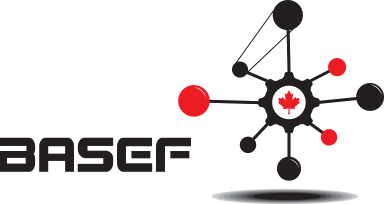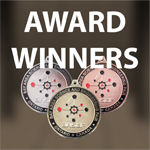
Choosing a Science Fair Project Topic: Steps and Inspiration
Some tips from Maya, a 2021 fair Student Advisor.
Are you stuck on how to choose your topic for your next science fair project? Or, maybe you’re just looking for a little inspiration. This article will go over the important things you need to know to pick your topic, with resources included at the end to start your idea search.
Choosing a topic is arguably one of the most difficult parts of a science fair project. This is something that you’re going to be working on for a number of months, and you will feel a lot of pressure to come up with the “perfect idea” right off the bat. Maybe you do come up with an idea right away that works for you, but the majority of winning projects take time and follow a process.
Step 1: Narrowing down your field
If you think about the world of STEM, there’s an infinite amount of projects that could be done, and problems that could be solved. It’s very important that you choose something that you’re interested in, but that still could include a lot of ideas! Take a look at the following page: https://www.basef.ca/levels-and-divisions/
BASEF has our project divisions (also known as categories) listed on our website. To start, you could select one or two divisions that appeal to you for further exploration. Inside each division is an explanation of what is included, which could give some inspiration. Once you’ve narrowed down your field, you can proceed to the next step.
Another option you could check out would be the International Science and Engineering Fair. Their project categories and subcategories are listed on their site. There are more categories, which means that they are more specific, which could be helpful to explore after BASEF’s divisions. Try reading down the list until you find something that resonates with you.
https://www.societyforscience.org/isef/categories-and-subcategories/all-categories/
Step 2: Doing your research
Once you have a field of STEM that you’d like to explore, the next step is to research. Find out what the current trends are in the industry, problems that have no answers, or questions that people are asking. You might find that reading about the newest research sparks an idea that you’d like to explore further. Follow any leads that you’re interested in, and gain as much knowledge as you can. Try reading the newspaper, science magazines, websites, or blogs, asking questions to the adults in your life, or examining recent scientific journals. This step can help you in all stages of your project, from getting started to answering interview questions at the fair!
Step 3: Define your project
Now that you have an idea of what you’re working with, it’s time to define your project. You need to pick a question that you’d like to answer or a problem that you’d like to solve. Keep in mind three important things:
- Choose something you’re interested in!
- Be innovative → a winning science fair project will tackle something new. It doesn’t need to be rocket science! You can choose to do existing experiments with a new twist or apply a well-known material/substance to solve a new problem.
- Plan ahead → a lot of project topics that you might be interested in could require resources and help that you may not have access to. This is the time where you may need to consider gaining a mentor. Mentors are industry contacts that can do anything from answer some questions you have, to providing you with lab space and beyond. It’s not always possible to find a mentor that matches with you and your project, and it may not even be necessary (winning projects don’t need a mentor!). So make sure to evaluate what would work best for your situation. If this sounds like something you’re interested in, check out the two resources below:
http://nbrsf.com/wp-content/uploads/2014/02/SMARTS_Mentorship-E1.pdf
Remember that it’s okay to go through these steps a couple of times to generate different ideas! You might find that the topic you selected requires materials or technology that you can’t get access to. Or maybe your topic just isn’t possible in the timeline before the fair. Just keep going until you find a project that works for you. Once you’ve got your topic, check out BASEF’s student workbook for how to continue developing your project:
https://www.societyforscience.org/research-at-home/how-to-approach-a-scientist-virtually/
Inspiration
If you’re looking for sites to get you thinking about your topic, check out the list below:
Chemistry:
https://libguides.humboldt.edu/openedu/chem
https://www.futurelearn.com/subjects/science-engineering-and-maths-courses/chemistry
http://www.chemcollective.org/vlab/vlab.php
https://www.acs.org/content/acs/en.html
Engineering:
https://www.livebinders.com/play/play_or_edit?id=145153
https://www.edx.org/search?subject=Engineering
Environment:
https://topics.forestry.ubc.ca/
General Science:
https://www.sciencebuddies.org/
https://www.societyforscience.org/research-at-home/citizen-science/
https://ikblc.ubc.ca/resources/webcasts/
https://universityvideos.org/Contents
https://www.societyforscience.org/research-at-home/large-data-sets/
Mathematics:
http://www.fields.utoronto.ca/centres/centre-mathematics-education
Physics and Astronomy:
https://hubblesite.org/resource-gallery/learning-resources/public-lecture-series
https://www.universe-of-learning.org/universe-at-home
https://www.asc-csa.gc.ca/eng/youth-educators/default.asp
Other:
https://www.sciencefairs.ca/let-s-innovate!-podcast/
https://youthscience.ca/ysc-launches-podcast/
https://www.edx.org/school/ubcx
https://mi.mcmaster.ca/open-online-learning/
https://www.ted.com/playlists/253/11_ted_talks_by_brilliant_wome




